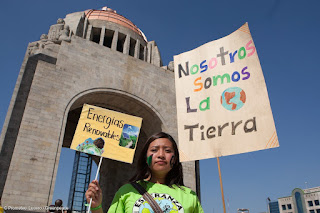"Latinx Enviromentalisms: Place, Justice, and the Decolonial" by Sarah D. Wald provides a deep insight into how much the Latinx community has contributed to Environmentalism and how their contribution has been consistently glossed over throughout history due to environmental racism. Sarah D. Wald as well as several other relevant authors provide a different perspective on Latinx environmentalism and gives a voice to the community that has done so much for the environment but have not received the credit for it.
 |
| Exploring Latinx Environmentalism |
Wald discusses the sub fields within the environmental humanities. These sub fields include ecocriticism, environmental history and environmental anthropology which have grappled with the legacies of exclusion racialization. Waves of ecocriticism have resulted in the concept of race being taken much more seriously. This has resulted in a greater emphasis on ethnic studies, postcolonial studies, environmental justice, and critical race theory. All of these concepts have been used to "interrogate environmentalism's 'possessive investment in whiteness" (Wald). These study and emphasis put on these subjects also has allowed us to see what other cultures have contributed and care about Environmentalism. This is due to the fact that when Environmentalism is discussed it is mostly seen as a problem that white, European or Western people address. These waves bring more voices to the table and show how many communities articulate traditional environmentalist values.
 |
| Introducing Greenpeace Unidos: A place for Latinx Environmentalists |
The word 'environment' itself includes the separation between humans and nature even though ironically 'environmentalism struggles to reunite humans with our natural environment'. Therefore, this article brings up the question: 'Does the word environment remain relevant when different communities "may understand nature in a different way as to merit a different term?"' This perspective can change what society sees as 'environmental'. Latinx cultures have been supporting their environment in 'non traditional' ways due to the structure of their country and land being different. In several instances, non western or non dominant works focus on their environmental ideas as well as inclusion of social justice, identity, and cultural tradition which is why the environmental portion may get overlooked.
 |
Hello Ariana,
ReplyDeleteI enjoyed your analysis of the Latinx Environmentalism article, and it has definitely given me a deeper insight into the relationship of the Latinx community and the environment. I learned more about ecocriticism and the subfields of environmentalism in general. Your post has also made me think about a day when these courses, such as critical race theory, ethnic studies, postcolonial studies, et cetera will be implemented in public schools and higher education. I definitely hope these studies are applied soon to the curriculum so we learn about things like Spanglish and Black English outside of our class too. I feel everyone should be aware of how race and other intersectional traits intersect each other.
Hi Ariana,
ReplyDeleteThe analysis that you have done here is very insightful. Even though I have read the article, what you did here has helped me to understand more on the purpose of it. One of the details that made me think more about is the purpose of the recovery model. Those who are at the forefront in the mainstream environmental movement needs to recognize that the Latinx community are passionate about taking care of the environment. Also, those at the forefront needs to fully understand that the myth about the Latinx community not capable of caring for their environment can create a negative effect.